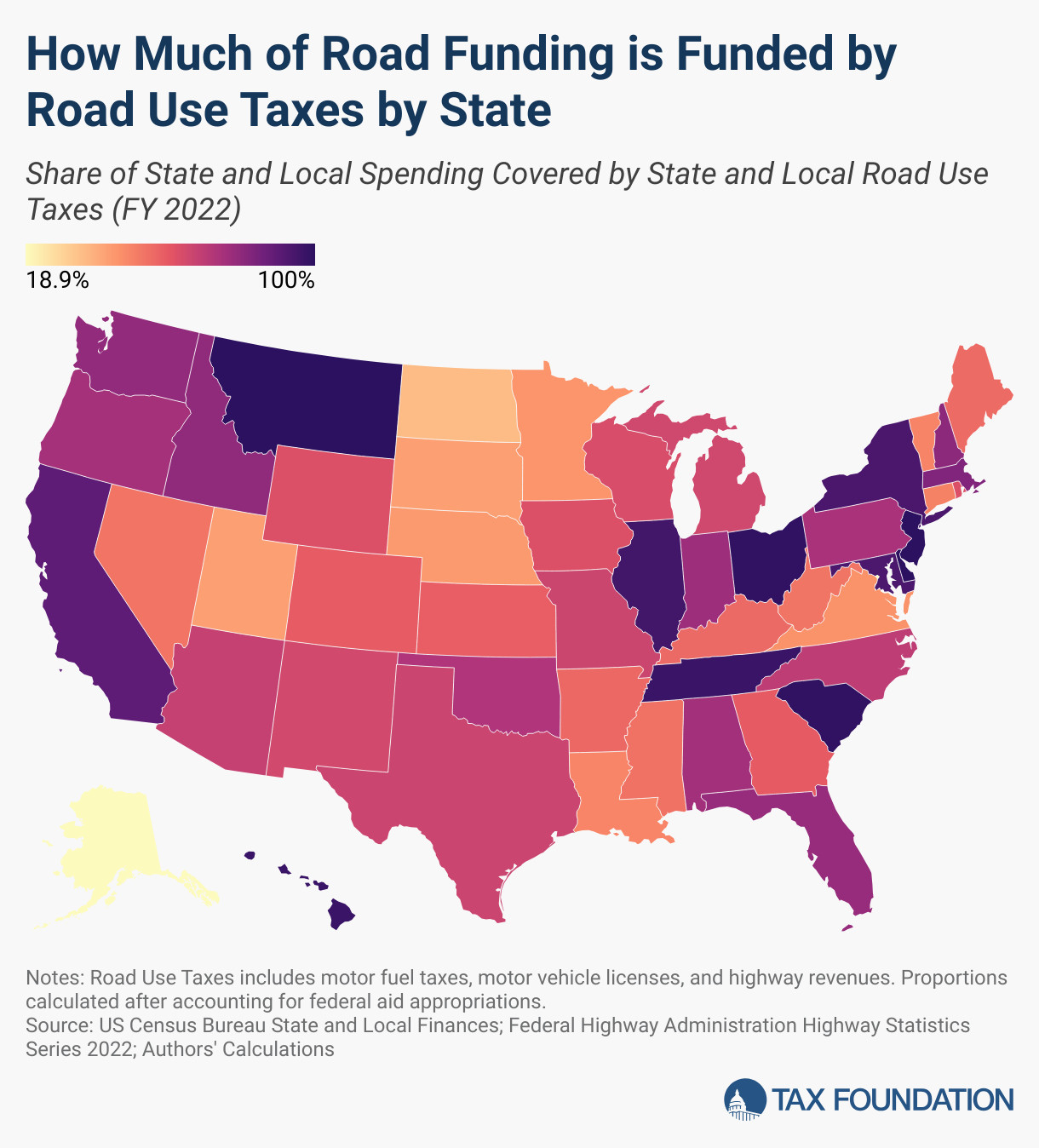Only 3 states Delaware, Montana, and New Jersey raise enough revenue from cars to fully cover their highway spending.
The remaining 47 states and the District of Columbia must make up the difference with tax revenues from other sources
By diverting general funds to roadway spending, the burden of paying for the roads falls on all taxpayers, including people who drive very little or may not drive at all.
Source: https://taxfoundation.org/data/all/state/state-road-taxes-funding/



Sure not everyone drives a lot or even own a car but they do use the roads. Do they shop? Do they buy groceries? Do they use public utilities? Do they expect emergency service to come when needed?
A lot of things need roads besides your personal car. Kind of a crazy take to say only car owners need to pay for road infrastructure. I’m with you in spirit but exercise a little common sense.
by this logic you should be vehemently defending people’s right to bike and walk on the roads, surely?
I’d be ok with roads being fully user-funded and having the additional cost be added to the things I buy instead of them being tax subsidized.
Then the people who already paid for the roads would have to pay again. The first people pay the the roads so everyone can use it. I’m your scenario there would be no roads for your good and services to enter your area for you to buy anything to get road taxed on.
Just in the most basic example if you a want the fire truck to get to your burning house doing 50mph you need to help with roads. Otherwise you can wait it out while they go slowly down a dirt trail to get to you. Unless you don’t want to pay for the fire station either since you never use it or only rarely use it. You see. It can go on forever there’s no end. Again I’m asking for common sense.
if we reset road costs from right now, the people using the roads have got a lot for free from general taxation… i think it’s fair that their current payment - rego, fuel excise, etc - covers both maintenance and investment… the original investment has already been paid many times over by other people
roads exist… i think everyone here isn’t arguing for reparations, just “for the future”
okay but that’s the beauty of currency: the fire department pays for roads like everyone else, and that means the fire department budget gets increased, and probably taxes to match (though overall eliminating taxes to cover roads would probably come out in the wash mostly)… i don’t think anyone here is against paying a bit to ensure emergency services can fulfil their mission, but paying for roads is an indirect way of doing that
what if there’s a cheaper way of providing emergency services? in the case where we are subsidising roads, we’re artificially saying almost that the fire department must use them… to do anything else would be a cost, where roads are free… the fire department like anyone else should pay for their costs, and find the most efficient solutions
no, you’re asking for status quo… if you took all the money allocated to roads and either gave tax cuts (which would mostly get gobbled up by increases in goods to cover the cost of transport), or redirect to emergency services (which would go toward paying for roads that they use), then people have the choice to buy goods and services that don’t use roads rather than artificially making roads the cheap option